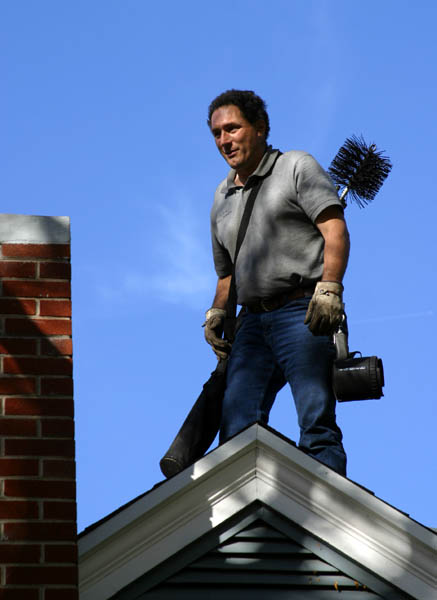Having written a book on Internet Crime, I never cease to be amazed by the number of scams that people try.
I get four or five junk phone calls a day and it is getting to the point where I am seriously considering getting rid of the phone line. As with Internet spam, they are no longer sales calls, they are outright scams.
Like any sort of crime, these scams should be taken very seriously. The scams continue because the crooks continue to find victims. And most of the victims are the old and the vulnerable.
Some tell-tale phone scam warning signs:
- They ask you for a credit card number.
- You hang up on the caller and they call back from a different number.
The Chimney Sweep Scam
A scam that has become very popular in the winter is to call up people to tell them their flue needs cleaning out and they will be round in 30 minutes. Could you just settle with a credit card first?
Needless to say, the folk performing the scam never show up and they have no connection with the real company whose name they use when calling.

The Charity Scam
The worst thing about the fake charity scam is that in many cases it is completely legal as the legislation enacting the FTC 'Do Not Call' list has an exception for purported 'charitable purposes'. US Charity law requires almost no proof of charitable purpose or efficiency.
A typical cold-calling 'charity' spends 95% of the donations it receives on 'fund raising'. Which means that the people running the charity also own the company they outsource their fund raising efforts to. This company in turn skims 50%+ of the gross off as profit and pays it to the owners. Some of the purported charities spend no money on charitable purposes at all. Instead they take donations in kind and pass them on, grossly inflating the value in the process.
The Political and Religious Variations
One of the pioneers of this approach was Jerry Falwell who used it to make a fortune from his parishioners. When political groups started renting out his mailing lists, Falwell realized that he could double dip himself and the 'Moral Majority' was born.
Since a political party or a pressure group lives for no purpose other than communicating its message, there is little reason to explain how the money is spent. After a very short while, Falwell had many imitators, all following the same formula of carpet-bombing seniors with pleas for money to 'stop' some alleged social ill.
This type of scam used to be mostly limited to hot button social issues like gay marriage and looking for people willing and able to chip in $20 or so to prevent some alleged threat to civilization without much thought. But as with most scams, the scammers really don't care where the money comes from. Recently my inbox has been filled with begging letters from people telling me they need $50 to protect 'net neutrality'.